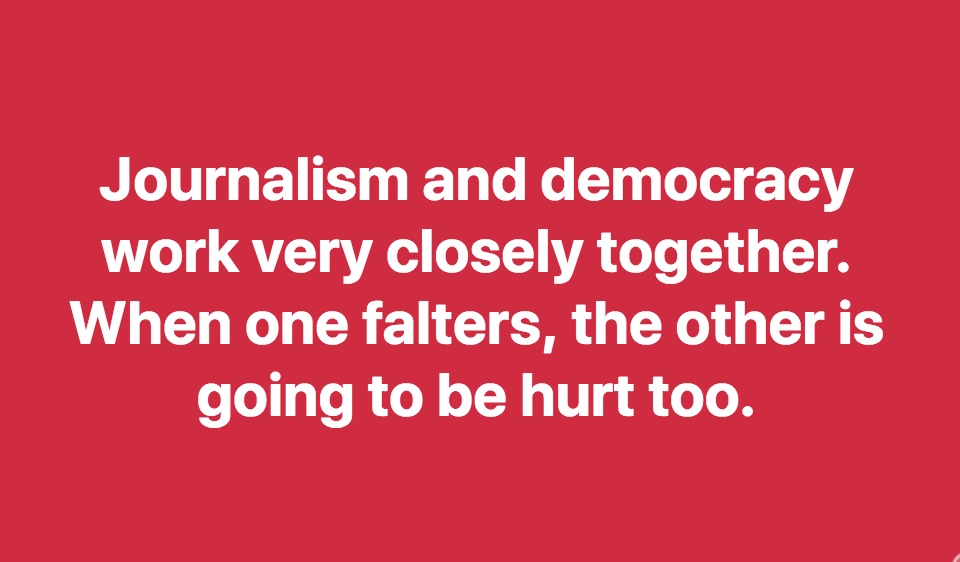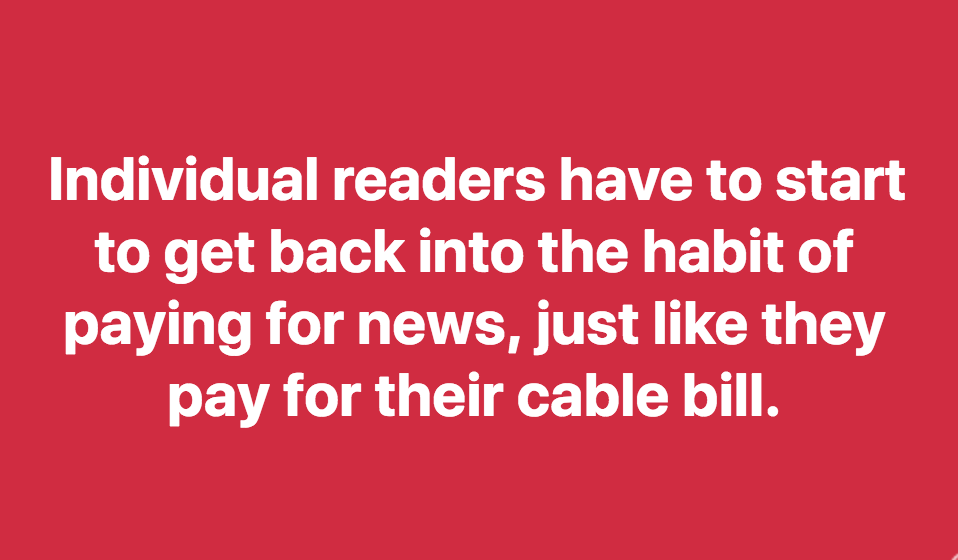 When investment bank Lehman Brothers collapsed ten years ago, the news took the whole world by surprise. In the months that followed, the bank became a symbol of corporate greed and a cautionary tale of what happens when elites are allowed to proceed unchecked. In the years leading up to the bankruptcy, however, there had been little indication of where things were headed. Investigations into the complex financial schemes that eventually threatened the global economy had been scarce and had never received the mainstream coverage they deserved.
When investment bank Lehman Brothers collapsed ten years ago, the news took the whole world by surprise. In the months that followed, the bank became a symbol of corporate greed and a cautionary tale of what happens when elites are allowed to proceed unchecked. In the years leading up to the bankruptcy, however, there had been little indication of where things were headed. Investigations into the complex financial schemes that eventually threatened the global economy had been scarce and had never received the mainstream coverage they deserved.
Dean Starkman, a financial journalist and media critic, claims that journalists had failed to do their job—investigate and report on corruption in the US banking system and the risky investments that nearly took down the system and sparked the worst economic crisis since the Great Depression in the 1930s. In his book The Watchdog that Didn’t Bark: The Financial Crisis and the Disappearance of Investigative Journalism, Starkman explores why there was so little coverage of dangerous banking practices and how the lack of oversight may have contributed to the crisis. In the following interview for the America for Bulgaria Foundation, he also compared media conditions in Bulgaria and Hungary today to the conditions in the United States ten years ago: investigative reporting is stifled, and there are few checks on corporate and political power.
Starkman has written for the Wall Street Journal, the Los Angeles Times, the New Republic, the Nation, Mother Jones, and Washington Monthly, among others. In 1994, he helped lead the Providence Journal’s investigative team to a Pulitzer Prize.
By Dean Starkman
Public-interest journalism: A public good
Accountability reporting is journalism that holds power to account, that explains complex problems to a mass audience, that connects one sector of society, the news-reading public, to other sectors they would not normally encounter. This is journalism that is, almost by definition, not particularly profitable, and it is what economists call the public good. Public-interest journalism is very difficult to monetize. It’s typically time-consuming, resource intensive, expensive, often risky. There’s legal risk, and sometimes physical risk for journalists. All of these conspire to make it a public good that is very difficult to sustain commercially. By the same token, it is utterly vital to the proper functioning of any democracy. Public-interest journalism is absolutely critical to our lives as citizens.
The decline of public-interest journalism and the 2008 financial crisis
 If journalism tells the right stories, then the public can do something about them. [In the book] we did a content analysis that scrubbed the record pretty thoroughly, and we found that there was a dramatic drop-off, almost a disappearance, of the kind of accountability reporting about Wall Street, and the mortgage industry that was funding it, that would have at least informed the public and policymakers about corruption in the US financial system.
If journalism tells the right stories, then the public can do something about them. [In the book] we did a content analysis that scrubbed the record pretty thoroughly, and we found that there was a dramatic drop-off, almost a disappearance, of the kind of accountability reporting about Wall Street, and the mortgage industry that was funding it, that would have at least informed the public and policymakers about corruption in the US financial system.
There are three basic reasons for this decline. One was the economic problems that journalism was already undergoing. With the tech wreck in the US, there was a severe ad recession that people forget about but actually really knocked media on its heels and caused widespread cutbacks and a loss of confidence. Second, the Bush administration came in with a radically pro-business and a radical deregulatory agenda. And regulation and journalism are very closely aligned. When regulation collapses, journalism really struggles. Regulators often follow up on journalistic exposes, they actually take up their ideas and findings and turn them into prosecutions, lawsuits, indictments, white papers, congressional hearings, which in turn generates more information, which journalists can use. When regulators come out with a case, journalists use the documentation and produce their own exposes. Once you take regulation off the table, journalism makes the sound of one hand clapping. Any journalist or investigative reporter in Bulgaria or in Hungary can tell you, that’s exactly what’s happening now. They are producing great exposés. Then, typically, in a functioning democracy legislature would take it up, a committee would start to investigate, there would be hearings, perhaps the accounting office would begin an investigation, maybe a local prosecutor would take it up. In Hungary it doesn’t ever happen, and in Bulgaria it doesn’t happen either. Journalism and democracy work very closely together. When one falters, the other is going to be hurt too.
The third reason was a cultural one. In the book, I juxtapose two competing tendencies and practices within the field of journalism: access and accountability. And these are always in tension and struggle for dominance in the journalism field. Access will always have the upper hand. There was a cultural retreat within journalism during this period—a narrowing of the gaze of business journalism.
The digital disruption
Now, we are in this brave new world, partly caused by the financial crisis, combined with the much more permanent digital disruption from Google and Facebook, which basically, combined, conspired to destroy the business model of newspapers and other media as well. We had a hard time making public-interest journalism work before the internet crisis, and it is much harder now. Advertising used to be, in the US, 80 percent of revenue for the newspaper business. And when it goes away, you basically have to start from scratch, rebuild the entire system. Once advertising collapses, you can have news organizations, but it’s very difficult to have news organizations of scale. The digital economy, for a lot of reasons, is making it very difficult for news organizations to scale. Thirty thousand jobs have been lost in the US newspaper industry alone, from about 60,000. There are huge chunks of the country that are essentially uncovered.
 In Bulgaria and in Hungary, we simply do not have enough working journalists, I mean journalists who are working for a politically independent, financially autonomous news organization. I am not talking about the oligarch press, or the government-funded press; I am talking about the independent media. We just don’t have enough.
In Bulgaria and in Hungary, we simply do not have enough working journalists, I mean journalists who are working for a politically independent, financially autonomous news organization. I am not talking about the oligarch press, or the government-funded press; I am talking about the independent media. We just don’t have enough.
A new business model for media
The digital advertising market is pretty well foreclosed because of the big internet giants, and in small markets like Bulgaria and Hungary, that problem is compounded because the government is so dominant that it is difficult for a for-profit business to advertise in a politically independent newspaper that might be doing investigations, that holds power to account. For small markets, it’s doubly difficult for a news organization to base its revenue on the advertising market.
Subscriptions used to make up 20% of newspaper revenue [in the US]; they have to be at least half now. Individual readers have to start to get back into the habit of paying for news, just like they pay for Netflix or their cable bill. Second, there does have to be a public policy component. The trouble is, in places like Bulgaria and Hungary, and anywhere really, you don’t want government funding. You want to come up with something a little more innovative. Hungary has a program passed in the 1990s. In Hungary, you can check off on your income taxes that 1 percent of your return will go to an NGO or a charity. It started for animal shelters and homeless shelters and hospitals in the ’90s. A couple of news organizations fashioned themselves into formal foundations and were now eligible for this 1 percent checkoff. And that’s become an important pillar of funding for the more important independent news organizations in Hungary. It comes from the government, but it is not controlled by the government; it’s controlled by the taxpayer. What you want, ideally, is a broad base of small contributions: readers and taxpayers who form a critical mass to create, in the end, a powerful journalism sack.
Photo courtesy of the LA Times.

